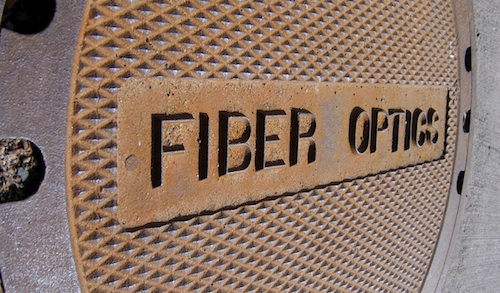
SA’s three biggest cities are all pushing ahead with ambitious fibre-optic network projects, promising businesses and even residential customers cheaper and faster broadband.
The municipalities of Durban, Johannesburg and Cape Town are all pushing ahead with plans to build thousands of kilometres of fibre infrastructure as they try to drive down communication costs in their cities.
Durban’s eThekwini municipality appears to be leading SA’s other big cities in its fibre roll-out.
The eastern coastal city already has 700km of fibre in the ground and is providing non-contended access to 350 companies in the region at speeds of up to 100Mbit/s.
The network is operated on the city’s behalf by IT group Dimension Data, which says the all-fibre network extends from Tongaat north of Durban to Umkomaas in the south. A western leg reaches as far as Botha’s Hill, near Hillcrest.
Much of the fibre was already in the ground before the city decided to open it up to commercial service providers, though it has extended it to provide connectivity in areas where it didn’t already have network infrastructure.
Jay Reddy, Didata’s executive regional director in KwaZulu-Natal, says 13 licensed network service providers purchase “dark fibre” (fibre that hasn’t been lit up, or used) from the city and resell bandwidth and applications on this to their clients.
Companies interested in accessing the network must apply to a commercial service provider, which will then submit an application to the city for a new fibre spur to be built, if necessary.
Access is available in speeds ranging from 500kbit/s to 100Mbit/s, though Reddy says most clients opt for connections of between 2Mbit/s and 4Mbit/s.
Though fibre access is not available to end-user consumers yet, Reddy says the city’s long-term goal is to build fibre to the home.
Developments in Johannesburg have been a lot slower. Discussions around the city’s fibre project started five years ago. However, it only got off the ground in January with the launch of a company called BWired.
BWired was started by Ericsson SA, which won the tender to implement Johannesburg’s planned R1bn broadband network project. Unlike Durban’s network, which mainly serves business customers, BWired will lay fibre in underserviced areas.
BWired MD Keith Kenneth says the project involves the deployment of 900km of fibre, which will take around three years to complete. However, he says the company is hoping to have the network ready sooner than that.
The project was put on hold for a few months around June and July because BWired was not allowed to dig fibre trenches during the World Cup. However, Kenneth says workers will be digging again soon.
The first areas expected to have fibre are Orange Farm and Soweto. Once they are online, other sections of Johannesburg will be lit up area-by-area in six-monthly increments.
The City of Cape Town could not be reached for comment. However, in May the first segment of its broadband project went live.
A section of cable running through the city centre between Cape Town Stadium and the Civic Centre is in operation and being used to improve communications between buildings owned by the city.
Cape Town’s council approved the project in 2008, and the city invested R125m rolling out the first segment of fibre.
The next step for Cape Town is to complete a southern route that will include the suburbs of Plumstead and Claremont. It still needs to source the funding for this section.
The city says the plan, ultimately, is to benefit underserviced areas like Khayelitsha, Athlone and Mitchells Plain. — Duncan McLeod and Candice Jones
- Image credit: Uberculture
- Subscribe to our free daily newsletter
- Follow us on Twitter or on Facebook




